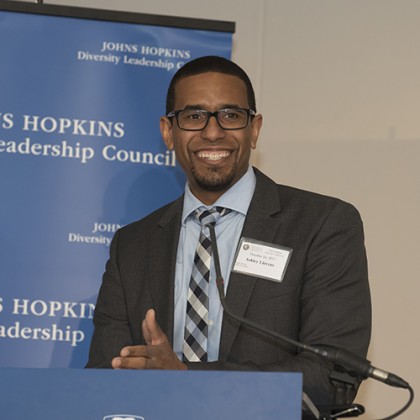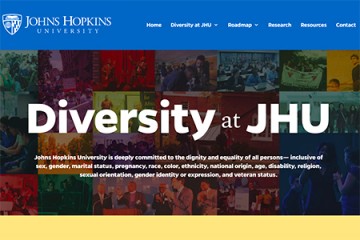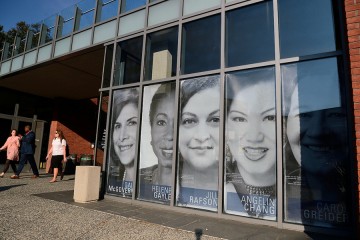Ashley Llorens, chief of the Intelligent Systems Center at the Johns Hopkins Applied Physics Laboratory, has been named to a second three-year term as chair of the university's Diversity Leadership Council.

Image caption: Ashley Llorens
The DLC is a group of students, faculty, staff, and administrators from across all divisions of Johns Hopkins who work to create a sense of community and support activism in an effort to help the institution achieve its goals of diversity and inclusion.
"Over the past three years, Ashley has been a true partner in elevating issues of diversity and inclusion across our campuses," said Ronald J. Daniels, president of Johns Hopkins University, who first appointed Llorens to chair the DLC in 2014. "He has been a resounding and respected advocate for the priorities of the DLC, creating and solidifying new relationships across the institution to advance its efforts. He has also answered the call to serve the university in important ways—including on the provost search committee—that have brought the values of the DLC into key conversations at critical moments for our community. I'm delighted that he has agreed to lead the DLC for a second term and look forward to continuing our work together."
Since its founding in 1997, the DLC has successfully lobbied Johns Hopkins on social issues including domestic partner benefits, diversity training for new supervisors and managers, and diversity councils throughout the institution's nine divisions. The group helped propose and establish Johns Hopkins LGBTQ Life; the JHU Forums on Race in America speaker series; and the Diversity Innovation Grants program, which has funded efforts such as opening all-gender restrooms on Homewood campus and celebrating the contributions of women to Johns Hopkins.
The DLC has also spearheaded diversity and inclusion benchmarking efforts, including the 2006 JHU Climate Survey and supported the administration on the JHU Roadmap on Diversity and Inclusion published in November.
The Hub reached out to Llorens for his insights on the work of the DLC and where he hopes to lead it.
Tell us a little bit about the Diversity Leadership Council and what you find rewarding about your work there.
The DLC strives to channel people's grassroots energy into progressive change at Hopkins. Among the many awesome things about leading this group is getting to work closely with people who are passionate about Hopkins and the work that they do here. When we say that we're going to advance diversity and inclusion, it's important to understand that doing so is fundamental to advancing the missions of Hopkins.
Think about what Hopkins is—the university is a world-class teaching and research institution; Medicine provides world-class health care; and where I work at APL, we make critical contributions to critical challenges in national security, space exploration, and health. That breadth of activity is part of what makes Hopkins such an exciting place to be. Amidst that breadth, diversity and inclusion are cross-cutting dimensions around which we come together from across the institution.
And that's why the council is made up of people from different constituencies across Johns Hopkins?
Yes. The people who join the Diversity Leadership Council are, in a sense, volunteers. Their contributions usually go above and beyond their primary roles and responsibilities, but they do it because they consider it to be a part of their citizenship of this institution.
So much more work in this area needs to be done than can be done by the people whose primary job is to work on diversity and inclusion. If you think about the magnitude of the challenge of diversifying the institution and achieving a truly inclusive environment, it's really everybody's job.
What's new at the DLC?
We introduced three new subcommittees: Climate and Culture, Staff Development, and Student Experience. And each subcommittee has year-end goals relating to their subjects.
In our yearly retreat before the start of the school year, we noticed that campus climate was a big issue—there had been the demands put forward at the Black Student Forum the previous year, and a series of rallies. So that made us extra serious about having a conversation about campus climate, and setting some tangible goals.
So we're definitely trying to be responsive to what students have been saying about campus climate, and the key is to engage the students in making some of those changes. We want to advance beyond students throwing ideas over the fence—we want to close that loop and engage students as stakeholders in the process.
Do you ever feel at a disadvantage because you work at the Applied Physics Lab, where you don't come into contact with students regularly?
Well fortunately, I don't have to have all the good ideas, and when you think about it, that general notion is right at the heart of what we mean by inclusion. I'm fortunate to lead this council of about 50 people who come from all walks of the institution, and I definitely rely on their experiences—because no one person really has the full experience of Hopkins. It's by coming together that we form that broader perspective.
Posted in University News










